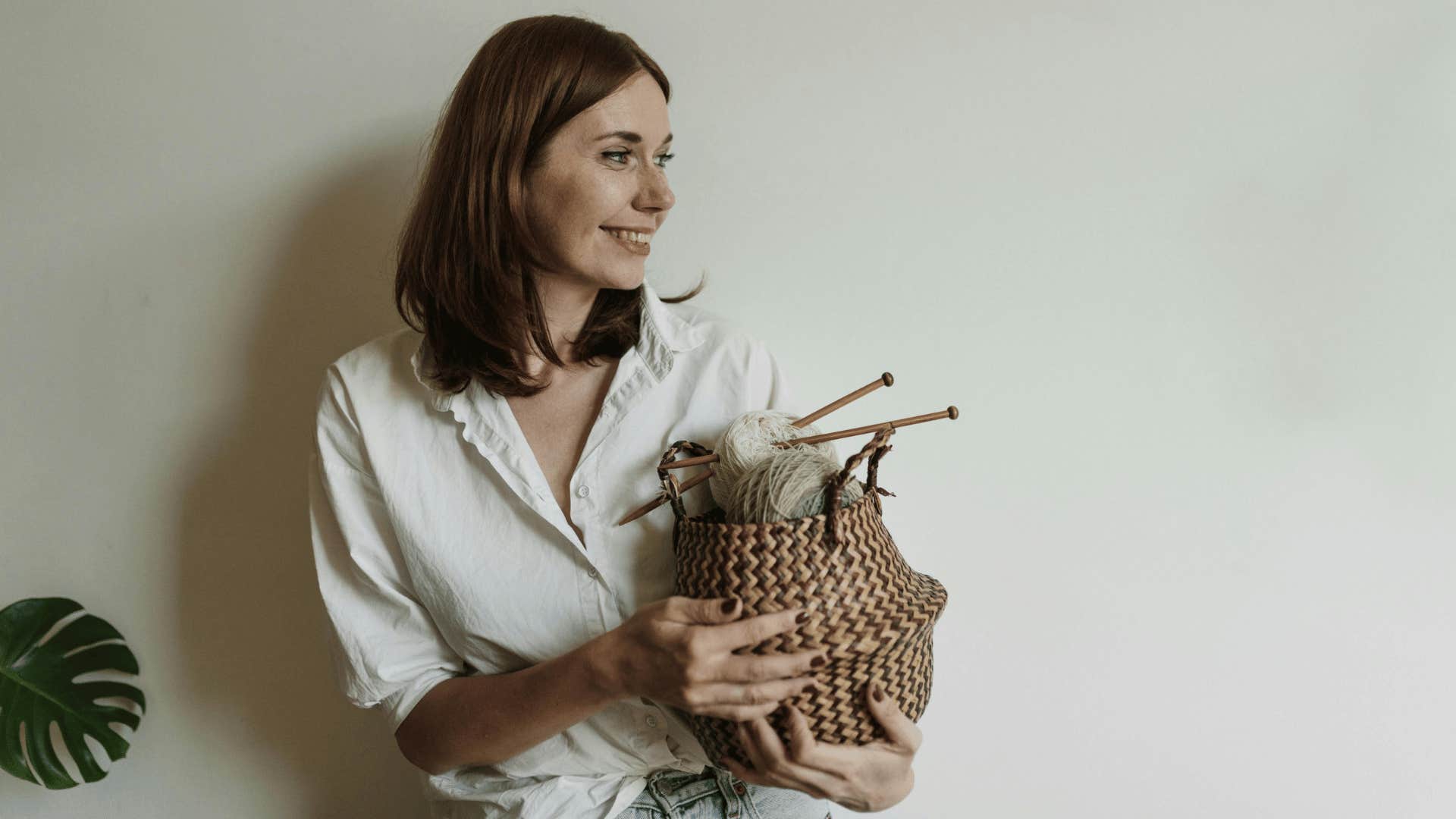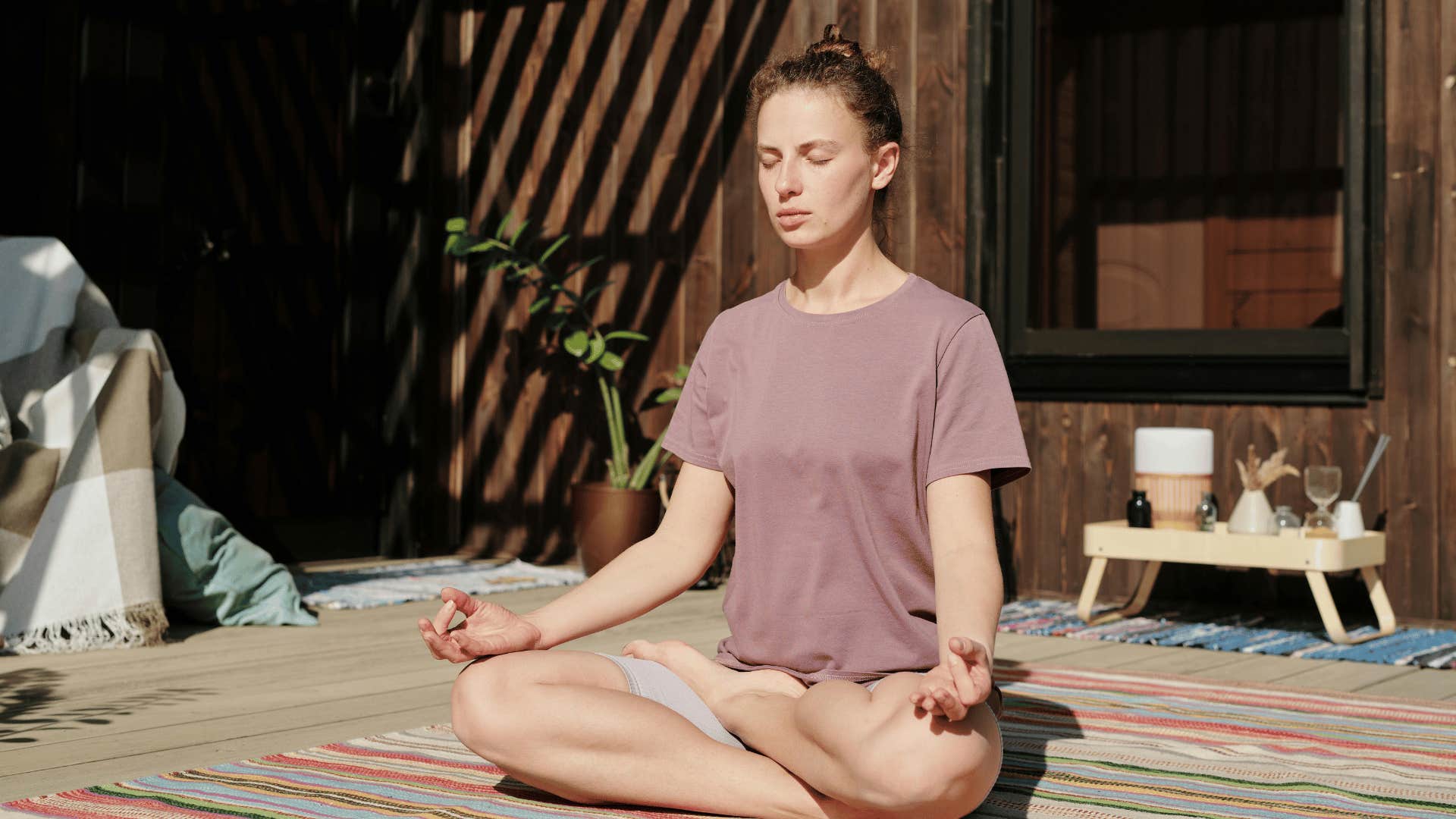9 Signs Someone Has True Integrity, According To Psychology
It starts with knowing themselves inside and out.
 LOOK | Canva
LOOK | Canva There is a constant force that slowly and subtly works against your individuality. Humans are strongly attracted to conformity and get uncomfortable when they sense they are different from those around them.
So many of us are just coasting. We live for others. We sacrifice who we are to fit in and appease our beliefs about how life is ‘supposed’ to be. But a new life of energy and enjoyment awaits when we truly know ourselves.
Here are 9 signs someone has true integrity, according to psychology:
1. They are unapologetic
 Daniel Xavier | Pexels
Daniel Xavier | Pexels
Honor your obsessions, weird or otherwise. What could you talk about for hours? What kinds of books sit on your bookshelf?
Go deeper. We can deny ourselves by closing ourselves off from our interests. Don’t allow your judgmental thinking to get in the way of pursuing what you want.
Often, we hold back because we think we’ll look silly. You can’t buy into this. Don’t die with regrets because you never truly came to life doing what energizes you.
2. They debunk false beliefs
 Tima Miroshnichenko | Pexels
Tima Miroshnichenko | Pexels
We all entertain beliefs that aren’t true, often without realizing it. When we hold a belief to be true, such as: ‘I am not a very creative person.’
We will find ways to confirm and manifest the truth of that belief in the world. False beliefs sabotage you. Challenge these thought patterns and you will see there are other ways of seeing things.
You will catch a glimpse of who you are behind these beliefs, and you can detach them entirely. That’s how to be free.
According to the American Psychological Association, cognitive distortion is an inaccurate way of thinking. It is a fairly typical mental process that varies among people. According to a 2021 study2021 studyTrusted Source, cognitive distortions can contribute to the development and worsening of mental health conditions such as depression.
3. They try new things
 Arina Krasnikova | Pexels
Arina Krasnikova | Pexels
You may not know what you’re good at or what you’re best suited to. Try a range of different things. This is especially important when you’re young, but there’s no age at which experimentation should cease.
Even if you think you have it all figured out, you need to welcome change and try new things. One of the best ways to experiment is to create and publish many different types of content, from articles to videos and podcasts.
4. They don't pretend to know everything
 Tima Miroshnichenko | Pexels
Tima Miroshnichenko | Pexels
I’m not saying run around like a headless parakeet for the sake of being busy. But far too often, we stall because we’re confused or stuck or feel we need some clever plan to proceed. Forget all that. Action into the unknown will yield all the information you need. Action cures sadness, loneliness, and a lack of motivation.
Research from the University of Texas in Austin has shown that human babies have a natural curiosity and thirst for learning. Yet, as we age, we start to feel ashamed of “not knowing.”
Knowledge is not finite. It’s not an end goal. It’s a process made of learning, curiosity, and not knowing, and the more we recognize what we don’t know, the more thoroughly we can engage in the process that makes up knowledge.
5. They don't live by a set routine
 Karolina Kaboompics | Pexels
Karolina Kaboompics | Pexels
The gurus rant and rave about the power of routine. Great to a point. Mix things up a big lest your brain matter turns to goop. You want to throw yourself into new environments often. Work somewhere new today. Go on an adventure tomorrow. Meet someone new next week.
It's important to note that having a routine isn’t necessarily a bad thing. In fact, according to researchers from the Association for Psychological Science, it can help you stay organized, be productive, or even find meaning. Certain studies from the American Psychological Association have associated family routines with parenting competence and marital satisfaction. However, it's also crucial to remember that not all routines are created equal, and failing to examine or alter our habits can limit or deaden our lives.
6. They think before they react
 Werner Pfennig | Pexels
Werner Pfennig | Pexels
Worry is a woeful misuse of the imagination. We worry, but our thoughts were never intended for this. Sure, temporarily judge things as bad — that’s survival. But once the threat has been identified, you need to either take a breath and get back to sleep or take action.
Focus on what’s in your control. Stop debilitating yourself by immersing yourself in awful, frightening thoughts. This is a waste of life.
7. They honor themselves by creating what comes to mind
 Abby Chung | Pexels
Abby Chung | Pexels
Humans, as I always say, were born to create. The ability to envision a future and act on our plans creatively is literally what separates us from the rest of the animal kingdom.
To create is to be human. If you’re feeling mopey, create. Then, create more. The more you create, the more creative you become. Create something today.
8. They know that movement is medicine
 Samson Katt | Pexels
Samson Katt | Pexels
Go on a walk and draw it out. Walking without headphones in nature signals to your brain that you’re putting rushing on hold for a moment.
Let your body relax into the flow of it so you merge with your surroundings. Nature has a way of opening up the parts we usually keep closed because we’re not in the right environment.
9. The only focus on experiences that add value to their life
 Vlada Karpovich | Pexels
Vlada Karpovich | Pexels
Society loves telling you that happiness will arrive when certain conditions are met. So you keep accumulating things and then wonder why you’re still miserable. Finding yourself is more a process of letting go than adding anything unnecessary.
Be intentional about this. Drop anything that drains you. Learn more about minimalism. Cut the bills for things you don’t use. Throw out everything that isn’t adding value to your life. It’s hugely relieving. Be different and focus on experiences over material items. This is to be on a journey taking you closer to you.
According to research from the National Library of Medicine, minimalistic consumers prefer simplicity, abstain from indulging in materialism, and minimize their dependence on materialistic things to seek instant gratification. Researchers have found that people across the globe realize that less really can be more.
Alex Mathers is a writer and coach who helps you build a money-making personal brand with your knowledge and skills while staying mentally resilient.

